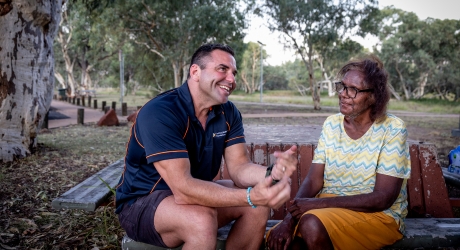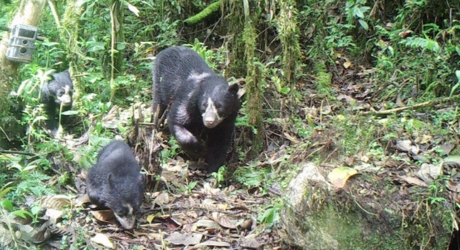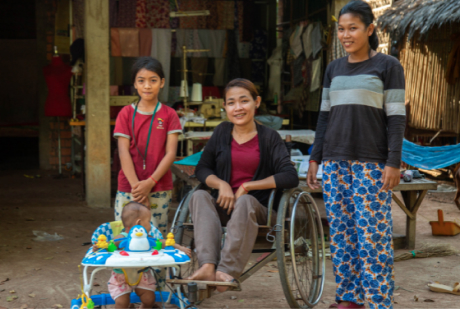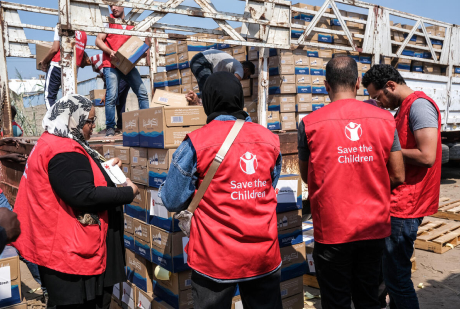Footprints Project
Since 2005, travelers like you have helped us change the world through micro-donations.
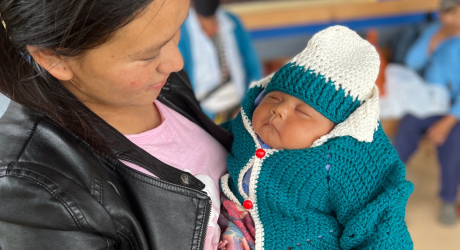
-
A total of
4812
Travelers
-
donated
$30006.15
(100% funded) -
to help improve
Health
-
impacting
13388
people -
in
Nepal
Project Background
The Solukhumbu Women's Health Project, run by Action for Nepal, focuses on improving the sexual and reproductive health of women living in the remote communities of Waku, Chheskam and Taksindo. While significant progress has been made in the past few years, key targets in reproductive and sexual health still need to be met to reduce women’s mortality and ensure healthy lives.
The rural health centers in the wards where the project is implemented are run by paramedics and auxiliary nurse midwives. Patients often must be referred to the district hospital or to other hospitals in other districts as there are no laboratory or x-ray facilities for proper diagnosis and care. People in the remote mountainous communities are economically poor and these referrals add to the burden of out-of-pocket expenses for healthcare.
AHF and Action for Nepal are now piloting a telemedicine component whereby the health workers in these remote areas will be supported by a medical team in Kathmandu.
Project overview
With just over a year left to go on this project (ending June 2025), Action for Nepal is continuing to work towards meeting the following project outcomes:
- Health facilities well equipped, supplied, staffed, and managed, particularly regarding sexual and reproductive health
- Increased capacity and attendance of health staff and Female Community Health Volunteers
- Increased access to women’s health services
- Increased inclusion of women with disabilities and improved processes for safeguarding of women and children
Key Project Outcomes
To December 2023, program highlights include:
Minimum Service Standards. Significant improvements against the Nepal government Minimum Service
Standards for health posts in each ward, including on areas relating to health facility management and
governance (25% improvement/79% average) and for furniture, equipment, medicine and supplies,
particularly regarding sexual and reproductive health (17% improvement/85% average).
Health action plans. Health plans have been developed and Health Facility Operation Management
Committees are meeting regularly. Each ward has now developed a health action plan and budget which
is being regularly monitored. The committee members conduct monthly meetings, with active participation and discussions on completed and upcoming monthly activities.
Dedicated nursing staff. In December 2023, permanent nursing staff were recruited to replace contract
nursing staff at the Chheskam Health Post. The sanctioned posts for nursing staff in all three health posts have been filled.
Essential medical supplies. Equipment and supplies focusing on sexual and reproductive health have
been provided to the three wards and the health posts have regularly maintained a stock register.
Following a request from the Rural Municipality, equipment and supplies have been purchased for an
additional three health centers.
Functional laboratories for telemedicine. The lab setup process for telemedicine has started. One ward has already recruited a lab assistant, and the others are recruiting. Vendors for the procurement of lab equipment have been chosen through a quotation bidding process.
Staff attendance. Attendance of staff in the health posts have increased to 99% (up from 75%) on
average.
Health Mother Groups. A series of meetings aimed at increasing the mobilization in Health Mother
Groups were conducted with 44 participants. These sessions brought together Health Center staff, Female Community Health Volunteers, and Health Facility Operation and Management Committee members. The meetings’ regularity has increased to 81% across the three wards (compared to 55%).
Primary Health Care Outreach Clinics. An additional Primary Health Care/Outreach Clinic has been
successfully implemented in both Hewa and Dambai. During this reporting period, a total of 11 clinics
were conducted, benefitting 157 people in the communities.
Postnatal Care. The auxiliary nurse midwife from Waku Health Post provided postnatal care at home to
15 mothers totaling 36 visits.
Uterine prolapse camps. 345 women were screened for various reproductive problems, including
cervicitis, vaginitis, urinary tract infections, pelvic inflammatory disease, and uterine prolapse in two
Uterine Prolapse camps conducted in Waku and Chheskam.
Accessibility. Interviews were conducted with individuals with disabilities to systematically identify and
address the service barriers they encounter when accessing health post services. AHF, through our partnership with Sydney University, is currently supervising two interns who are conducting research as
part of their Masters in Global Health degrees to identify ways to address barriers and further promote
disability inclusion in our health program.
Challenges
There have been difficulties in traveling during the rainy season due to geographical conditions. There was also a delay in activities in Chheskam due to unavailability of vehicles because the bridge had collapsed due to flooding.
There was also a delay in hiring a lab assistant from the municipal health section, which impacted the start of the telehealth project.
Lessons learned
- Effective coordination with local government and various stakeholders, coupled with transparent communication, played a pivotal role in ensuring effective execution of activities and fostering a sense of ownership among stakeholders. The collaboration with the central government facilitated access to updates on national health programs, allowing us to align our initiatives strategically. The collective efforts of the team were instrumental in the punctual execution of project activities.
- While conducting the Uterine Prolapse Camp, seven cases of uterine prolapse were referred to hospitals for surgical intervention. Recognizing the imperative nature of managing diagnosed uterine prolapse, conversations with the referred cases revealed a need for surgical services.
- Acknowledging the potential economic burden, there is a consideration to incorporate surgical services into upcoming camps to provide a more comprehensive and accessible healthcare solution
What's Next?
- Conduct further capacity strengthening for the local representatives, ward chair and the health post.
- Review Minimum Service Standard for the health post to assess progress and identify areas requiring further support and review any relevant amendments of Health Facility Operations Management Committee action and capacity strengthening plans. Conduct training/mentoring in accordance.
- Review requirements for equipment and supply and monitor asset management.
- Supply equipment for the telemedicine lab and begin the setup process. Start lab operations and regularly monitor activities.
- Undertake yearly skills review with Female Community Health Volunteers and reward the best performing volunteer.
- Finalize research on strengthening disability inclusion and continue gathering data at the field level.
- Develop plan and budget for 2024-2025, including a plan for evaluation in 2025.
Traveling soon? When you buy travel insurance with us, you can make a contribution towards a cause you care about.
Get a quote